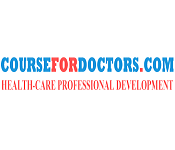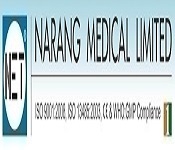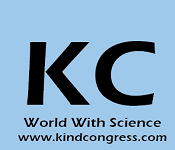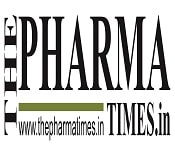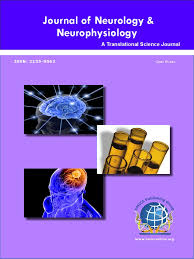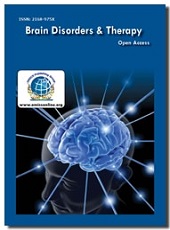On behalf of Organizing Committee we are delighted to invite the experts in the Field of Neurology and Psychology from around the globe to “2nd International Conference on Neurology and psychology” scheduled during November 18-19, 2019 at Rome, Italy.
The conference aims at gathering all research scholars, scientists, students, working professionals in the field of Neurology and Psychology to explore the theme of Neurology and Psychology in 21st Century. Neuroscience 2019 will be having a wide range of scientific sessions composing of Keynote Lectures, plenary sessions, Poster presentation, Workshops and product exhibitions
It is a platform that provides an ideal combination of excellent science, an open atmosphere and allowing attendees and speakers to easily focus on academic exchange of ideas and authoritative views which covers the entire spectrum of research in neurology and psychology.
Scope and Importance
For over the centuries neurology has remained as one of the most complex branches of science. Ever since Edward Flatau published his Atlas of the Human Brain and the Course of the Nerve-Fibres in 1894, many neurologists have worked their way in better understanding of how brain and the nervous system works.
Conventionally, the role of neurologists had been patient consultation and referring to physicians. However this scenario has been changed due to the 3 major developments in science
-
Advanced diagnostic methods which helped to better understanding the pathology of many Neuro-disorders.
-
Development of methods and therapies to treat the condition as pathology is known.
-
Recognition of neurology as a separate specialisation.
Still there are certain neurological and psychological diseases that need to make progress.With so much developments and discoveries making every day, there is a great need to sharing of the knowledge.
Benefits:
-
All accepted abstracts will be published in the supporting journals of the conference and Conference Book Proceedings.
-
Each abstract will receive a DOI number provided by Cross Ref
-
Opportunity to conduct Workshop with your team members
-
One to one interaction with Keynote Speakers, OCM and Eminent personalities for the future course of work
-
Opportunity to chair a session
-
Certification by the organizing committee
-
Individual keynote Page will be created to get more visibility for your scientific research
-
Huge Benefits on Group Registration and much more.
1.Clinical Psychology
Clinical Psychology is something that deals with the assessment of human abnormal behavior and its treatments.The common method of treatment for this type of abnormal behavior is Talk therapy or Psychotherapy which was first developed by Psychoanalyst Sigmund Freud; he was the first one who focused that mental illness can be treated with talking to the patients.
2.Behavioral Genetics
Behavioral genetics tells how the genetic composition of a person, the environment they are exposed to affect the behavior of that person. The technological advancements of genetic engineering in 21st Century have made it possible to measure and modify the genome of a person which is the key to behavioral genetics and later the Eugenics movement.
3.Biological Psychology
Biological Psychology is the only branch that says that there is an underlying physiological cause for all our emotions, thoughts, and feelings. For example the release of oxytocin in females leads to bonding behavior and so on... As behavior is controlled by central nervous system, physicians are trying to understand how the brain works to different stimuli like sense, perception, and motivated behavior.
4.Educational Psychology
Educational Psychology deals with behavior of a person during learning process from a cognitive aspect. Educational psychology helps the teacher to understand the development of his pupils, the range and limits of their capacities of learning. Its works by incorporating other branches like Developmental Psychology, Behavioral Psychology and Cognitive Psychology.
5.Developmental Psychology
People go through so many physical and emotional changes over the course of their lives, while these changes are normal; developmental Psychology mainly focuses on studying these emotional, behavioral changes over their lifetime. These studies help in detecting abnormal changes and help to treat some of problems like depression, low self-esteem and others.
6.Applied Behavior Analysis
Applied Behavior Analysis is a type of treatment process which focuses mainly on improving specific behavior process. Unlike most of the therapies where they try to explain why and how the person behaves like they do, Applied Behavior analysis tries to replace bad with good; it uses positive reinforcement to bring that change. This method of therapy is mainly applied for autism patients.
7.Experimental Psychology
Experimental Psychology involves the fact based aspects. It establishes the relationship between the activities of the brain and our behavior. Most of the experiments conducted in this area are done in Laboratory under controlled conditions. It also deals with hypothetical questions.
8. Psychological Testing and Measurement
Experimental psychology explores basic concepts, such as memory and motivation, in many areas, such as child, social and educational psychology. Almost all Experimental psychology work is conducted in controlled environments, such as university research labs. While every branch of psychology strives to understand human behavior and thought, experimental psychology solely focuses on controlled experiments with designated variables, test subjects and statistical results.
9.Psychological Disorders
Mental disorders (or Psychological Disorders) are conditions that affect your thinking, feeling, mood, and behavior. They may be occasional or long-lasting (chronic). They can affect your ability to relate to others and function each day. The causes of mental disorders are often unclear. Theories may incorporate findings from a range of fields. Mental disorders are usually defined by a combination of how a person behaves, feels, perceives, or thinks.
10. Social Psychology
Social psychology is a discipline that uses scientific methods "to understand and explain how the thoughts, feelings, and behavior of individuals are influenced by the actual, imagined, or implied presence of other human beings. Social psychology is all about understanding how each person's individual behavior is influenced by the social environment in which that behavior takes place.
11.Neurology
Neurology is the branch of medicine that deals with disorders of the nervous system, which include the brain, blood vessels, muscles and nerves. The main areas of neurology are: the autonomic, central and peripheral nervous systems. Illnesses, disorders, and injuries that involve the nervous system often require a neurologist’s management and treatment.
12.Neurogenetics
Neurogenetics studies the role of genetics in the development and function of the nervous system. The field of neurogenetics emerged from advances made in molecular biology, genetics and a desire to understand the link between genes, behavior, the brain, and neurological disorders and diseases.
13.Neurobiology
Neurobiology is the branch of biology that deals with nervous system functions and structures. More specifically, neurobiology focuses on the cells and tissues of the nervous system and ways in which they can form structures and circuits (pathways) for controlling the body.This system includes common structures, such as the brain and spinal cord, and nerves. Neurobiology can be classified as a sub-discipline within the broader field of physiology.
14.Neurosurgery
Neurosurgery is a specialization that treats diseases and disorders of the brain and spinal cord. Back pain can sometimes produce neurological symptoms such as numbness, muscle weakness, due to improper coordination of nerves. These symptoms are indicators that neurosurgery is required to treat the conditions which cannot be treated by normal methods. Neurosurgery include discectomy, laminectomy, and spinal fusion surgery. Often there is a higher risk of nerve damage and infection which may result in paralysis.
15.Neurological Disorders
Neurological disorders are diseases of the central and peripheral nervous system. In other words, the brain, spinal cord, cranial nerves, peripheral nerves, nerve roots, autonomic nervous system, neuromuscular junction, and muscles. These disorders include epilepsy, Alzheimer disease and other dementias, cerebrovascular diseases including stroke, migraine and other headache disorders, multiple sclerosis, Parkinson's disease, neuroinfections, brain tumours, traumatic disorders of the nervous system due to head trauma, and other neurological disorders as a result of malnutrition.
16.Clinical Neuroscience
Clinical Neuroscience is a branch where it studies all mechanisms and changes during a brain or nervous system disorder, and it tries to develop new methods of treatment approach for these disorders, this branch of neuroscience is of more research oriented and experimental.
17. Cognitive Neuroscience
Cognitive neuroscience is the study of how the brain influences the mind. Cognitive science uses the experimental methods of cognitive psychology and artificial intelligence to create and test models of higher-level cognition such as thought and language. Cognitive Neuroscience acts as a bridge between brain and method.
The market analysis of neurology represents the largest market in the medical sector. This estimated market analysis is based on the probability of approval and sales of products in late stage development, demographic trends, and marketing of the product.
As per the BCC report, the global market for neurological disease treatment and medication was worth $12.6 billion in 2006 and will reach $14 billion by 2007. At a compound annual growth rate (CAGR) of 11.6%, the global market has reached a worth of $24.3 billion by 2012. Global neuroscience industry demand was worth USD 24.09 Billion in 2013 and is anticipated to reach above USD 30.80 billion by 2020.
Estimated annual economic costs of anxiety disorders, depression and schizophrenia are $47 billion, $44 billion, and $33 billion per year respectively. Medications for multiple sclerosis are just over 35% greater than the market share of medication for Alzheimer's disease.
Drugs for multiple sclerosis, Alzheimer's disease, and Parkinson's disease control approximately 99% of the total market share. As AD drugs become more prevalent, the shares of the market could change dramatically.
25th World Congress on Neurology & Neuroscience was organized during
June 18-19, 2018 at Dublin, Ireland With the support and contribution of the Organizing Committee Members, we successfully hosted the event at the conference venue.
Firstly we must thank you for trusting us and participating at Neuroscience Congress 2018, a global platform to discuss various important aspects of Neurology and Neuroscience.
There are infinite reasons to extend our gratitude to you for making the Neuroscience Congress 2018 outstanding conference. We couldn't have done it without your continuous support and believe towards our organization, which mutually made to achieve Neuroscience Congress 2018 new height in the field of Neurology and Neuroscience.
The conference was marked by the attendance of young and brilliant researchers, business delegates and talented student communities representing more than 30 countries, who have driven this event into the path of success.
The conference was organized around the theme “Novel Therapies in Neurosciences and Neurological Disorders”. The event implanted a firm relation of upcoming strategies in the field of Neurology with the scientific community. The conceptual and applicable knowledge shared, will also foster organizational collaborations to nurture scientific accelerations. Hilary McDonagh , Sligo College of Further Education, Ireland was the moderator of Neuroscience Congress 2018. We are much thankful to Randall E. Merchant for his great support and help.
The conference proceedings were carried out through various Scientific-sessions and plenary lectures, of which the following Speakers were highlighted as Keynote speakers Patricia A. Quigley, Nurse Consultant LLC, USA; Char-Nie Chen, Chinese University of Hong Kong, Hong Kong; Natallia Halinouskaya, Gomel State Medical University, Belarus; Gabriele Saretzki, University of Newcastle upon Tyne, UK; Hebah Hefzy, Henry Ford Hospital, USA; Kiti Muller, Nokia Bell Labs Research, Finland; Kelly Flowers, University of Florida, USA; Anna Lou Olivier, São Paulo University, Brazil, Randall E. Merchant, The Virginia Neuroscience Initiative, USA; Rina Aharoni, The Weizmann Institute of Science, Israel, Hilary McDonagh, Sligo College of Further Education, Ireland. The conference witnessed an amalgamation of peerless speakers, Keynote speakers, well-known researchers and delegates who enlightened the crowd with their enviable research knowledge and on various alluring topics related to the field of Neurology through their fabulous presentations at the podium of Neuroscience Congress 2018.
Conference series LLC offers its heartfelt appreciation to all the Organizing Committee Members, Chairs and Co-chairs, Speakers, Students, Media Partners and Editorial Board Members of Journal of Neurology & Neurophysiology, International Journal of Neurorehabilitation and Journal of Neurological Disorders who supported the conference in every aspect for the awe-inspiring exhibition at the venue.
We are also obliged to various delegate experts, company representatives and other eminent personalities who supported the conference by facilitating active discussion forums.So as continuation of Neuroscience Congress 2018, we would like to heartily invite you to our upcoming 2nd International Congress on Neurology & Psychology scheduled November 18-19, 2019 Rome, Italy. We look forward to seeing your benign presence with active contribution and support to make this event successful once more.



